Philosopher as Advocate, Leader
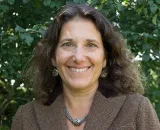
Deborah Markowitz ‘83
Visiting Professor, Environmental Policy and Leadership, UVM Rubenstein School of Environment & Natural Resources
Former Vermont Secretary of State, Former Secretary of Vermont’s Agency of Natural Resources
Deborah Markowitz was a philosophy and political science double major at UVM before graduating magna cum laude from Georgetown University Law Center and launching a career in law and public service. She was the first woman in Vermont to be elected Secretary of State, a position she held for twelve years. She went on to serve as the Secretary of Vermont’s Agency of Natural Resources from 2011 to 2017. Her political science major served her well, but she considers her studies in philosophy the true bedrock of her academic training. “I always knew I wanted to study philosophy because I was interested in all the big questions — what is the nature of reality? How do we know things? What is our place in the universe? What are our obligations to other human beings and to the earth?”
A native of Tarrytown, N.Y., Markowitz believes the intellectual discipline required in philosophy translates to success in the legal profession. Philosophy helped her think, write, and speak clearly, and it helped her develop compelling arguments to back up her positions. “Practically speaking, philosophy prepares students for the LSATs and helps them succeed in law school. More broadly, it provides the big conceptual frameworks and training in logical thinking that can apply to many different legal and policy situations.”
Markowitz also sees her background in philosophy as key to her leadership success. “It is easy to get stuck looking at a problem through our own narrow points of view. When we step into the shoes of others, we can find solutions that work effectively for everybody. My philosophical training taught me to look at a problem from several different perspectives, not just my own.”
As the Secretary of the Vermont Agency of Natural Resources, Markowitz’s role required her to find creative ways to solve problems. “For example, there were times when agency rules resulted in the denial of a permit to develop a particular project. But that prompts the next question: ‘What is it you really want to accomplish with your project?’ That conversation can lead to a new understanding of the problem and a route to a solution. These problem-solving skills are directly related to my training in philosophy and the law.”
Making the Case
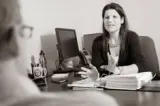
Rachel Wertheimer, JD, Class of ‘93
Trial and appellate attorney, Verrill Dana LLP
As a high school senior, my academic interests – to the extent I had any – were in politics and current events. I followed elections; I attended protests. I assumed I would be a political science major. However, after deciding to attend UVM, where my father was a political science professor, I decided not to major in political science and fell into philosophy instead. It was the best non-decision I ever made.
"Beginning with the introductory courses I took during my first year, I was asked to think hard about big issues and to express my analysis clearly and concisely. I considered (and momentarily pursued) an academic career in philosophy because I had so enjoyed studying it at UVM. But academia is not for everyone, and I learned quickly that it was not for me.
"I realized that what was rewarding to me about philosophy was not actually answering the big questions, but the process philosophers used to get there. I decided to go into the law. From my first day of law school and through my almost 15 years of practice, I have applied the tools I learned as a philosophy student, and I get much the same pleasure applying those tools to my legal work as I did applying those tools in my studies. I use the skills I learned to break down my cases and my opponents’ cases into their basic elements. A case or claim can fail if any one of its elements is unsupported by either fact or law. Breaking a case down into its elements is also necessary in order to analogize your case to reported cases. I use the skills I learned to grasp the logic that supports my arguments, my opponents’ arguments, and the law. I use the skills I learned to test the arguments I and my opponents advance: will the rule I or my opponent is urging the court to adopt for the case at hand apply with equal force in other circumstances involving other litigants? Finally, I express my arguments and analyses every day — to clients, opponents, and courts.
"These skills have served me well. They helped me through law school, to succeed as a junior associate, to rise to partner at a national firm, and then to transition to a regional firm in a more family-friendly location, where, when my five-year-old tells me I’m not being fair, I can confidently tell him that he does not understand what it means to be fair."
Recent Grad Admitted to Top Ranked Graduate Program
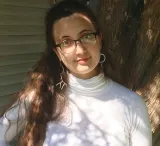
Graduate Student at Sciences PO, Paris
When Josamine Hall ’18 was accepted to UVM she was committed to studying biology. When she graduated magna cum laude four years later, she was a philosophy major. In between those milestones spanned an undergraduate career that explored along the boundaries of many different disciplines. In the fall of 2019, she continued her studies at the Sciences Po., the Paris School of International Affairs—it is among the top three internationally-ranked graduate programs in politics and international relations. “I really wanted to be a biologist, but I was intrigued by many of the humanities and social science courses I was taking,” she said. She found mentors and made connections across the UVM quad. Hall was hired by political science professor Garrison Nelson as a research assistant, and she contributed important background for his upcoming project on Presidents and Speakers of the House, as well as helping with articles published in The Hill, Polity, and others. She got interested in local politics, working on human rights issues for Vermont Democrats. In philosophy, she presented her independent research “Porphyry’s Argument Against Eating Animals” at the UVM undergraduate Research Conference in 2018. “One of the best things about UVM was a I felt the freedom to explore ideas from many different viewpoints.”
How Philosophy and Medicine Mix
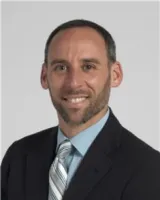
Seth Podolsky, MD, MS Class of ‘95
Director of Operations & Process Improvement in the Emergency Services Institute, Cleveland Clinic.
In 1991, my path was chosen for me the minute I walked into the classroom of a new professor named Don Loeb. It was our first class at UVM — his and mine. The rest, as they say, is history. Don guided me as a student and advised my professional career (well beyond college). To this day, he is a great mentor and friend. Throughout college, family and friends would ask, “What will you do with a degree in Philosophy?” “Anything I want,” I would reply.
"I finished college and did a stint as a substitute teacher, moved on to bartending, then eventually found my way into graduate school at Dartmouth College. My studies were multidisciplinary in health policy, epidemiology & biostatistics, outcomes research, and quality improvement – all on the heels of my years working clinically on the UVM Rescue Ambulance. I finished my master’s degree, then spent a few years in the PhD program. During this time, I used the critical thinking skills developed in the classroom at 70 South Williams Street. These skills were essential for my graduate work, as well as some sideline consulting.
"I was completely engaged in my graduate work, though felt disconnected from clinical medicine. In 2001, I left my PhD program and returned to the UVM College of Medicine. Wow! The last year of medical school, I meandered our amazing country and the globe: the Emergency Department at Mass General, Sports Medicine in Salt Lake City, Adolescent Medicine at Oakland Children’s Hospital. It ended with a two-month trip to Southeast Asia where I volunteered on the tsunami-devastated island of Ko Phi Phi.
"I returned to the States and traded in my relatively easy-going Vermont life for New York City – the perfect place to train in emergency medicine. I adopted the typical resident life of “work hard and play hard.” I took it all in – the Metropolitan Museum of Art, hipsters in Brooklyn, Yankees Stadium (a strange thing for a lifelong Red Sox fan), my favorite Afghani restaurant in Murray Hill, the Orthodox of Borough Park.
"Recently, I found my dream job at the Cleveland Clinic as the Director of Operations & Process Improvement in the Emergency Services Institute. As a doctor, I can help a few thousand patients a year. In my administrative role, I have the chance to impact more than 500,000 lives that enter any of twelve Cleveland Clinic emergency departments in northeast Ohio and Florida.
"Let me finish where I began. I would not be the person I am today without my time in the philosophy department. Don Loeb, Arthur Kuflik, and Bill Mann – only a few of the unique personalities that shaped my life, my relationship with the world, and the way that I engage with others. Do I recommend philosophy as a college major? Yes, without an ounce of hesitation."
Designing a Future
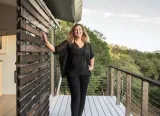
Tara Wood '97
Designer and Project Manager, Wannemacher Jensen Architects
Tara double-majored in philosophy and art at UVM, receiving her B.A. in 1997. After completing graduate studies in Architecture at the University of South Florida, Tara settled in the St. Petersburg-Tampa Bay area. In her work with Wannemacher Jensen Architects she has completed design and planning projects for the Largo Community Center (certified by the U.S. Green Building Council for Leadership in Energy and Environment), the Ford Amphitheater Soundwall, several sustainable-energy-plant projects, and two shelters for women and children in need. In addition, Tara co-owns, with her husband, the Cycle Brewery in St. Petersburg, Florida, a structure Tara also designed. Her background in philosophy helped prepare her for her post-UVM ventures.
Arthur Kuflik (UVM Professor Emeritus): Hi, Tara. I know you enjoyed your philosophical studies back in the mid-1990’s. You are now a practicing architect. What perspective on philosophy can you offer today’s students here at UVM?
Tara Wood: Actually, my having majored in philosophy – and my continuing interest in philosophical thought — has been incredibly helpful to me both in my architectural studies and in the professional work I have done since then.
A.K.: That‘s truly great to hear, but how so?
Tara Wood: When I got to architecture school, I found that most of my colleagues had majored in engineering or in (undergraduate level) architecture. Of course, they had worked hard to absorb the technical materials that were taught to them. But they had little or no experience thinking in broader conceptual terms and they weren’t very accustomed to analytical or critical thought.
A.K.: How does that sort of thinking play a role in architectural design?
Tara Wood: As an architect, you need to analyze what needs or purposes the project is intended to serve, and conceptualize various ways of prioritizing and meeting those needs. At the same time, what is built must also be in compliance with various codes — not only having to do with construction but also, for example, with environmental protection, and with zoning. Such codes are not always written very clearly or accessibly. My ability to read and to decipher them, to raise appropriate questions about what they mean, has a lot to do with the work I did in philosophy — reading and interpreting still more difficult and demanding philosophical texts, whether Kant or Heidegger, Nagel or Chalmers. And the same could be said about what it takes to write up a project proposal or to provide a progress report. The skills we honed as students of philosophy have a lot to do with being able to do the kind of work I do now in the way I believe it needs to be done.
A.K.: On a lighter note, I also understand that you co-own, with your husband, a brewery you designed.
Tara Wood: Yes, the Cycle Brewery in St. Petersburg, Florida. I designed it and he manages it.
A.K.: Well, OK then — one last question — is there a brewery in Vermont you especially like?
Tara Wood: Yes, the Hill Farmstead Brewery in Greensboro, Vermont!